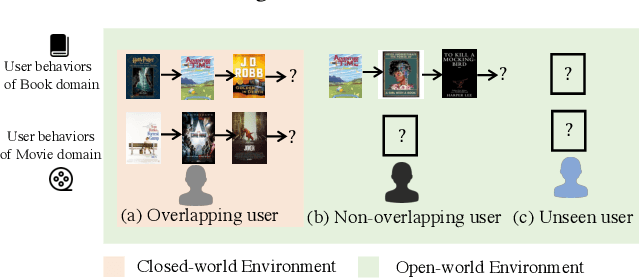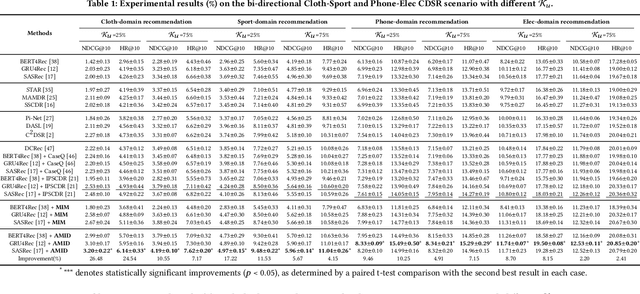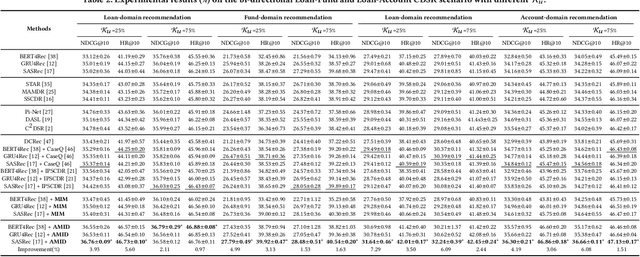Rethinking Cross-Domain Sequential Recommendation under Open-World Assumptions
Paper and Code
Nov 08, 2023



Cross-Domain Sequential Recommendation (CDSR) methods aim to tackle the data sparsity and cold-start problems present in Single-Domain Sequential Recommendation (SDSR). Existing CDSR works design their elaborate structures relying on overlapping users to propagate the cross-domain information. However, current CDSR methods make closed-world assumptions, assuming fully overlapping users across multiple domains and that the data distribution remains unchanged from the training environment to the test environment. As a result, these methods typically result in lower performance on online real-world platforms due to the data distribution shifts. To address these challenges under open-world assumptions, we design an \textbf{A}daptive \textbf{M}ulti-\textbf{I}nterest \textbf{D}ebiasing framework for cross-domain sequential recommendation (\textbf{AMID}), which consists of a multi-interest information module (\textbf{MIM}) and a doubly robust estimator (\textbf{DRE}). Our framework is adaptive for open-world environments and can improve the model of most off-the-shelf single-domain sequential backbone models for CDSR. Our MIM establishes interest groups that consider both overlapping and non-overlapping users, allowing us to effectively explore user intent and explicit interest. To alleviate biases across multiple domains, we developed the DRE for the CDSR methods. We also provide a theoretical analysis that demonstrates the superiority of our proposed estimator in terms of bias and tail bound, compared to the IPS estimator used in previous work.
 Add to Chrome
Add to Chrome Add to Firefox
Add to Firefox Add to Edge
Add to Edge